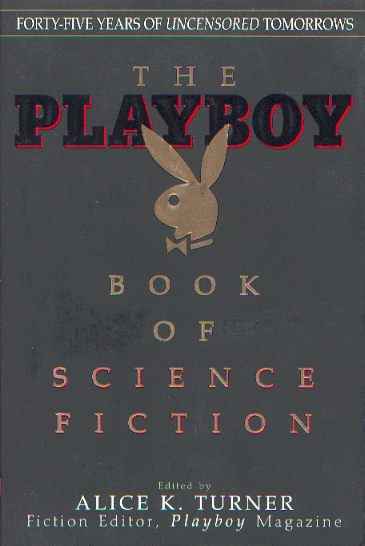Defining Genre Literature: The Career of Brian Aldiss
/ If you've been following along with my column for Kirkus Reviews (and these blog posts), you might have seen me reference one book a lot: Brian Aldiss's Billion Year Spree (or its updated version, Trillion Year Spree.) These two histories are incredibly important in the world of genre history, and I've paged through my copies many, many times. Thus, it was really unfortunate to see Aldiss pass away last month. He's a huge figure within the community, not only as a commentator, but as an author.
If you've been following along with my column for Kirkus Reviews (and these blog posts), you might have seen me reference one book a lot: Brian Aldiss's Billion Year Spree (or its updated version, Trillion Year Spree.) These two histories are incredibly important in the world of genre history, and I've paged through my copies many, many times. Thus, it was really unfortunate to see Aldiss pass away last month. He's a huge figure within the community, not only as a commentator, but as an author.
He's largely unknown to mainstream audiences, save for the fact that his short story 'Supertoys Last All Summer Long' was adapted into a Steven Spielberg film, A.I. Artificial Intelligence - in my mind, an underrated film about a robotic boy yearning for the love of his mother.
I actually met Aldiss over a decade ago while I studied abroad in England — I attended a literary festival in Oxford, where he and fellow local author Philip Pullman discussed science fiction and fantasy. It was an interesting discussion, and I'm glad that I had the chance to meet him, if briefly.
Go read Defining Genre Literature: The Career of Brian Aldiss over on Kirkus Reviews.

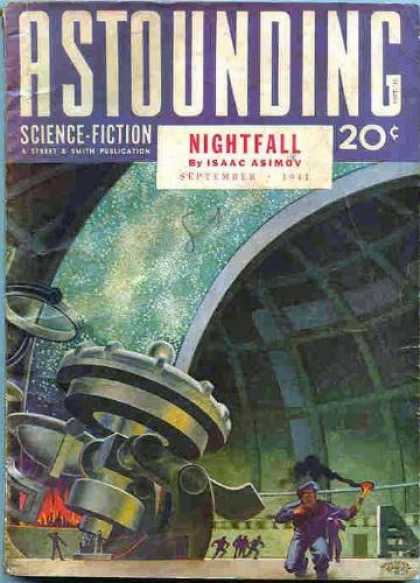 It's been a while. I've sadly neglected my Kirkus column: work has been busy, which means that on my off-days, I'm trying to stay away from the computer and focus on other writing / reading. I'm trying to get back into it, though, and to celebrate yesterday's eclipse, I put together a story about Isaac Asimov's famous story, Nightfall.
It's been a while. I've sadly neglected my Kirkus column: work has been busy, which means that on my off-days, I'm trying to stay away from the computer and focus on other writing / reading. I'm trying to get back into it, though, and to celebrate yesterday's eclipse, I put together a story about Isaac Asimov's famous story, Nightfall.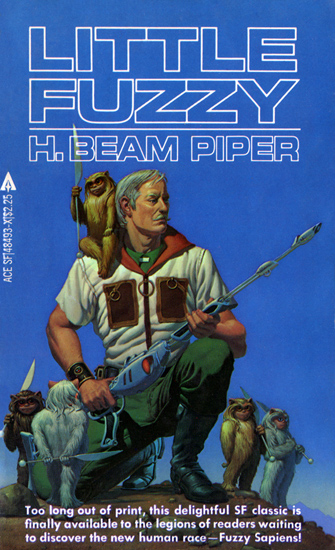 I've got a new column up on Kirkus Reviews this morning. This week, I'm looking at the career of H. Beam Piper, a science fiction writer who was active between the 1940s and 1960s, famously known for a book called Little Fuzzy.
I've got a new column up on Kirkus Reviews this morning. This week, I'm looking at the career of H. Beam Piper, a science fiction writer who was active between the 1940s and 1960s, famously known for a book called Little Fuzzy. When I was a kid, I remember a classmate bringing this book into class one day: it was a fascinating book to page through. It's also a strange one: illustrations of aliens from books and movies. It's the sort of thing that only the science fiction community could support and produce.
When I was a kid, I remember a classmate bringing this book into class one day: it was a fascinating book to page through. It's also a strange one: illustrations of aliens from books and movies. It's the sort of thing that only the science fiction community could support and produce. One of the books that I picked up over the holidays as Ursula K. Le Guin's The Word for World is Forest, which I've been reading in drips and drabs this month. It's a really stunning work of fiction, and it's a book that feels all the more relevant with what the Trump administration is shaping up for when it comes to policy, particularly around environmental areas.
One of the books that I picked up over the holidays as Ursula K. Le Guin's The Word for World is Forest, which I've been reading in drips and drabs this month. It's a really stunning work of fiction, and it's a book that feels all the more relevant with what the Trump administration is shaping up for when it comes to policy, particularly around environmental areas. There was a
There was a  Star Trek is one of those franchises that I've only dipped into occasionally: I never watched much of the shows, and I was more of a Babylon 5, Stargate SG-1 and Battlestar Galactica fan in college.
Star Trek is one of those franchises that I've only dipped into occasionally: I never watched much of the shows, and I was more of a Babylon 5, Stargate SG-1 and Battlestar Galactica fan in college.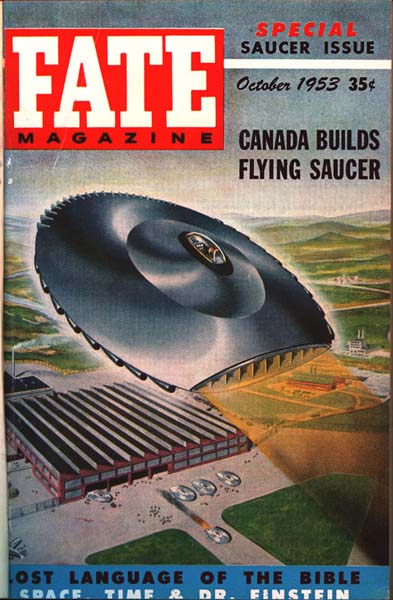
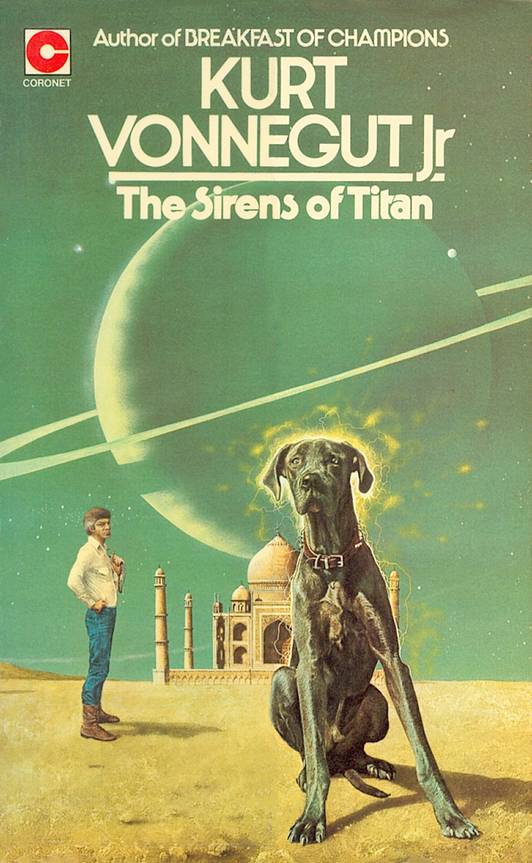 Kurt Vonnegut is one of those authors that I've continually missed over the years. For some reason, I never quite got around to reading Slaughterhouse-Five while in high school (or college), and I've missed his major novels as well. That said, one of the first science fiction stories that I ever read was 'Harrison Bergeron', which I also saw as a play when I was probably in Middle School - the Handicapper General. That story has stuck with me for years, and it's a brilliant piece of short fiction.
Kurt Vonnegut is one of those authors that I've continually missed over the years. For some reason, I never quite got around to reading Slaughterhouse-Five while in high school (or college), and I've missed his major novels as well. That said, one of the first science fiction stories that I ever read was 'Harrison Bergeron', which I also saw as a play when I was probably in Middle School - the Handicapper General. That story has stuck with me for years, and it's a brilliant piece of short fiction. While researching the Kirkus column, there's a bunch of authors who frequently appear: one such author is Poul Anderson, a hard SF author whose career really began to take off in the 1950s.
While researching the Kirkus column, there's a bunch of authors who frequently appear: one such author is Poul Anderson, a hard SF author whose career really began to take off in the 1950s. One of the authors I've been wanting to read more of is Connie Willis. I really loved her book Blackout, and I've recently picked up two others, Doomsday Book and The Best of Connie Willis.
One of the authors I've been wanting to read more of is Connie Willis. I really loved her book Blackout, and I've recently picked up two others, Doomsday Book and The Best of Connie Willis. One of the authors I've been really fascinated by is L. Ron Hubbard, who's probably best known for Scientology, his quasi-religion that seems perpetually mired in controversy. I've avoided writing about him up until this point, because I didn't want to put together a post that got involved in that argument, because there's already quite a bit written about it. What did catch my interests was how Hubbard's press seemed to artificially inflate their marketing numbers, and game the Hugo Awards back in the 1980s.
One of the authors I've been really fascinated by is L. Ron Hubbard, who's probably best known for Scientology, his quasi-religion that seems perpetually mired in controversy. I've avoided writing about him up until this point, because I didn't want to put together a post that got involved in that argument, because there's already quite a bit written about it. What did catch my interests was how Hubbard's press seemed to artificially inflate their marketing numbers, and game the Hugo Awards back in the 1980s.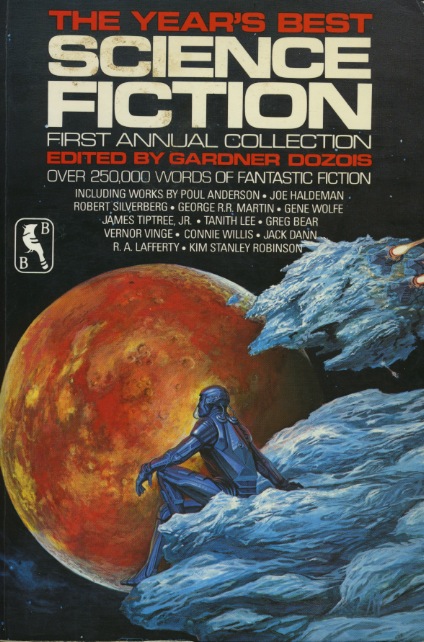 One of the first science fiction books that I ever bought was one edited by Gardner Dozois, one of his Year's Best Science Fiction collections (#18). I really loved anthologies early on (and still do), picking through and reading the summations of the prior year, and the fiction that made up the best of that year. Some of those stories still stick with me - one from Stephen Baxter (On the Orion Line), and a couple of others.
One of the first science fiction books that I ever bought was one edited by Gardner Dozois, one of his Year's Best Science Fiction collections (#18). I really loved anthologies early on (and still do), picking through and reading the summations of the prior year, and the fiction that made up the best of that year. Some of those stories still stick with me - one from Stephen Baxter (On the Orion Line), and a couple of others. When I was a bit more active in the Star Wars fan circles, something you couldn't escape from was fan fiction. Forums such as TheForce.net and Fanfiction.net each had vibrant communities in the early '00s, and there was a whole range of really interesting stories to really crappy ones. I wrote a couple of the crappy ones - spinoffs from the Rogue Squadron series - and I had a bunch of friends who did as well.
When I was a bit more active in the Star Wars fan circles, something you couldn't escape from was fan fiction. Forums such as TheForce.net and Fanfiction.net each had vibrant communities in the early '00s, and there was a whole range of really interesting stories to really crappy ones. I wrote a couple of the crappy ones - spinoffs from the Rogue Squadron series - and I had a bunch of friends who did as well. I have to say, I have a visceral reaction to a Baen cover when I see it on the bookshelf. I'm not a fan of the bold colors, typeface and generally, of the illustrations. I've picked up the books, and I'm typically not their target audience.
I have to say, I have a visceral reaction to a Baen cover when I see it on the bookshelf. I'm not a fan of the bold colors, typeface and generally, of the illustrations. I've picked up the books, and I'm typically not their target audience. My latest post is up on Kirkus Reviews, and it's all about the L.A. Science Fantasy Society, the longest-running science fiction fan clubs in the world.
My latest post is up on Kirkus Reviews, and it's all about the L.A. Science Fantasy Society, the longest-running science fiction fan clubs in the world. Chances are, if you've read a science fiction book in the last thirty years, you've picked up a book published by Tor. Founded by Tom Doherty in 1980, Tor has become one of the biggest dedicated publishers of speculative fiction since its founding.
Chances are, if you've read a science fiction book in the last thirty years, you've picked up a book published by Tor. Founded by Tom Doherty in 1980, Tor has become one of the biggest dedicated publishers of speculative fiction since its founding.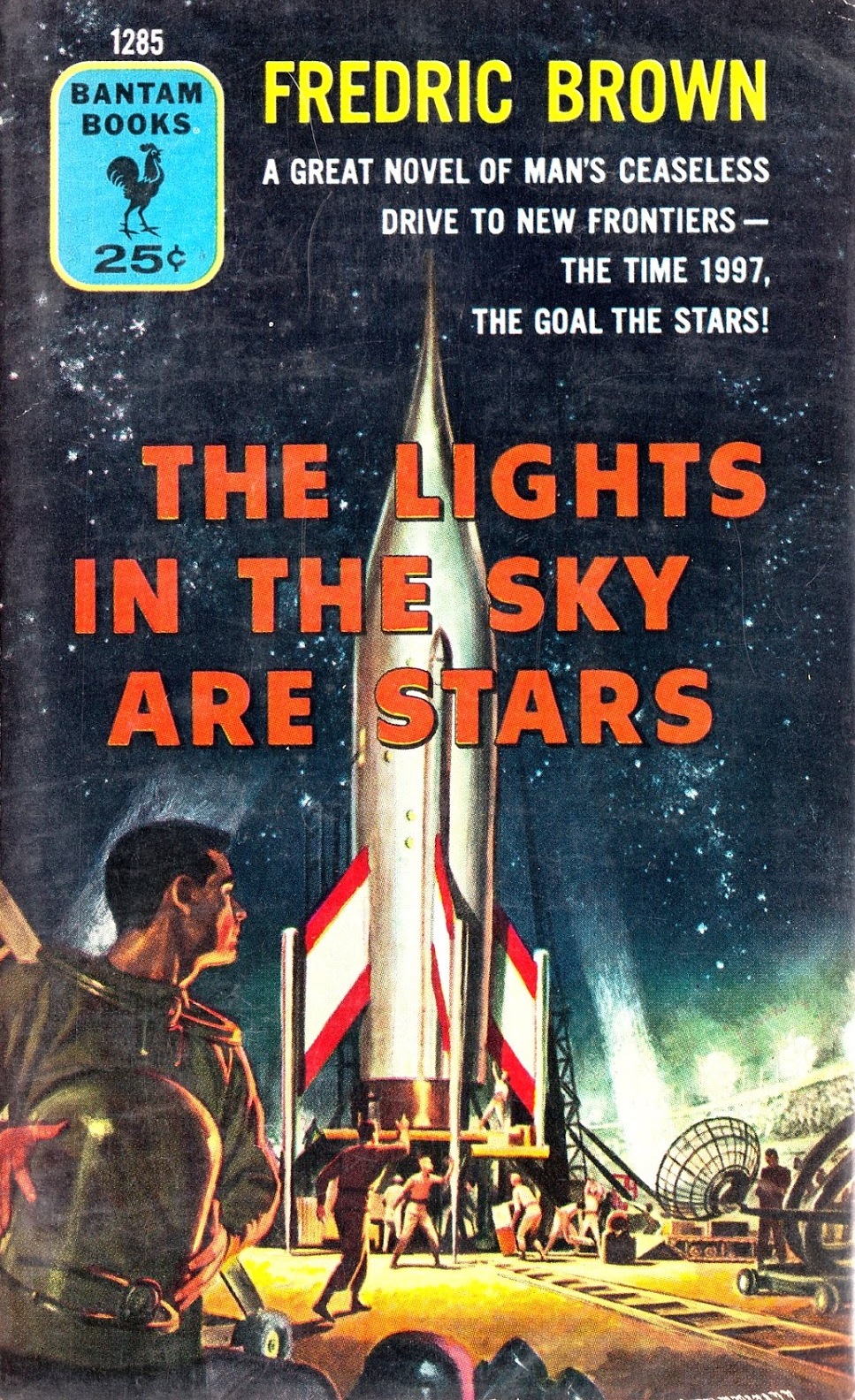 I need to get back in the habit of posting up these. My latest column for Kirkus Reviews is all about Fredric Brown, the author behind the story 'Arena', and a couple of novels, including The Lights in the Sky are Stars, which I read a couple of years ago.
I need to get back in the habit of posting up these. My latest column for Kirkus Reviews is all about Fredric Brown, the author behind the story 'Arena', and a couple of novels, including The Lights in the Sky are Stars, which I read a couple of years ago. I've been really bad lately about updating sources for my Kirkus columns in a timely manner.
I've been really bad lately about updating sources for my Kirkus columns in a timely manner.